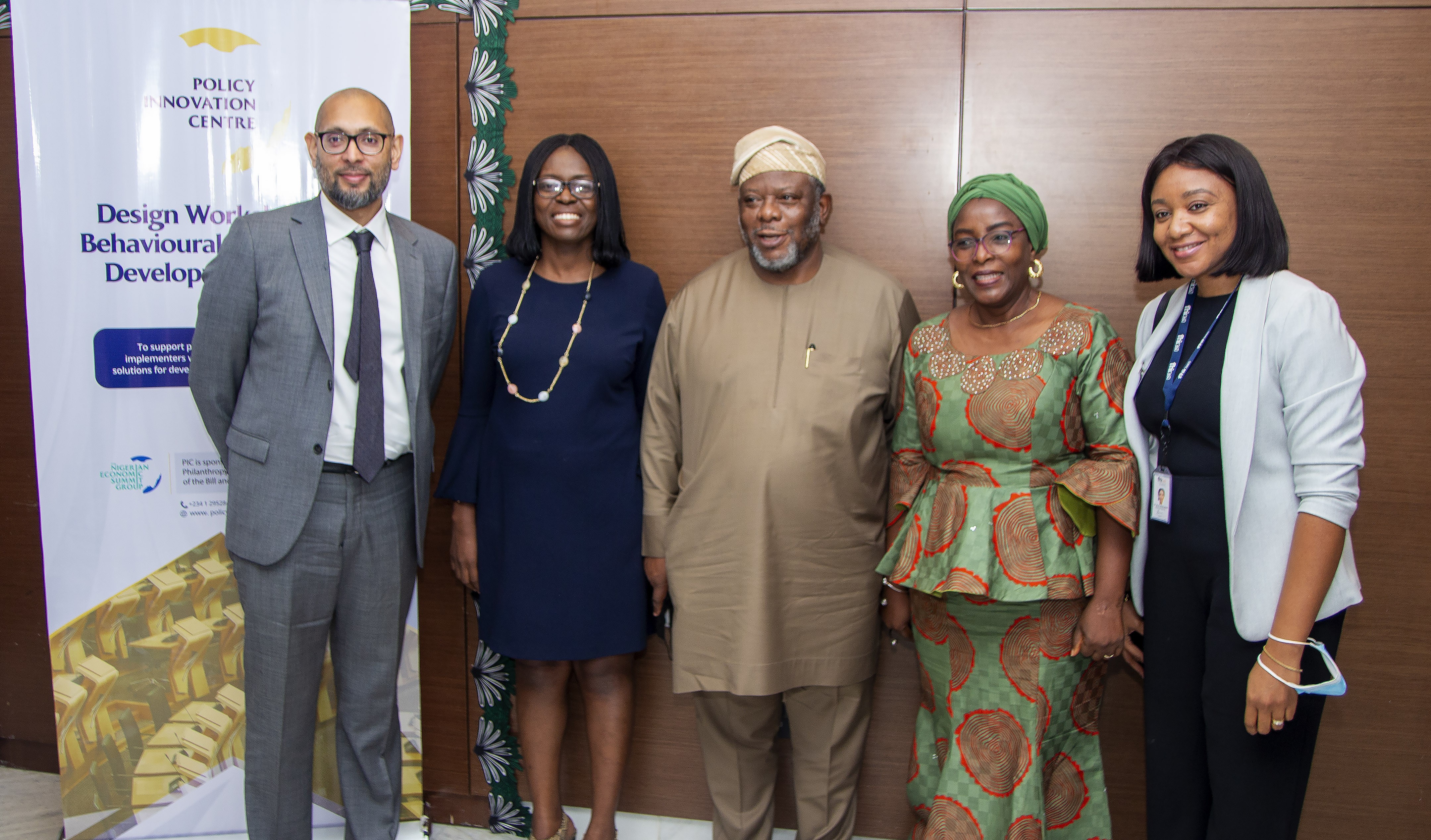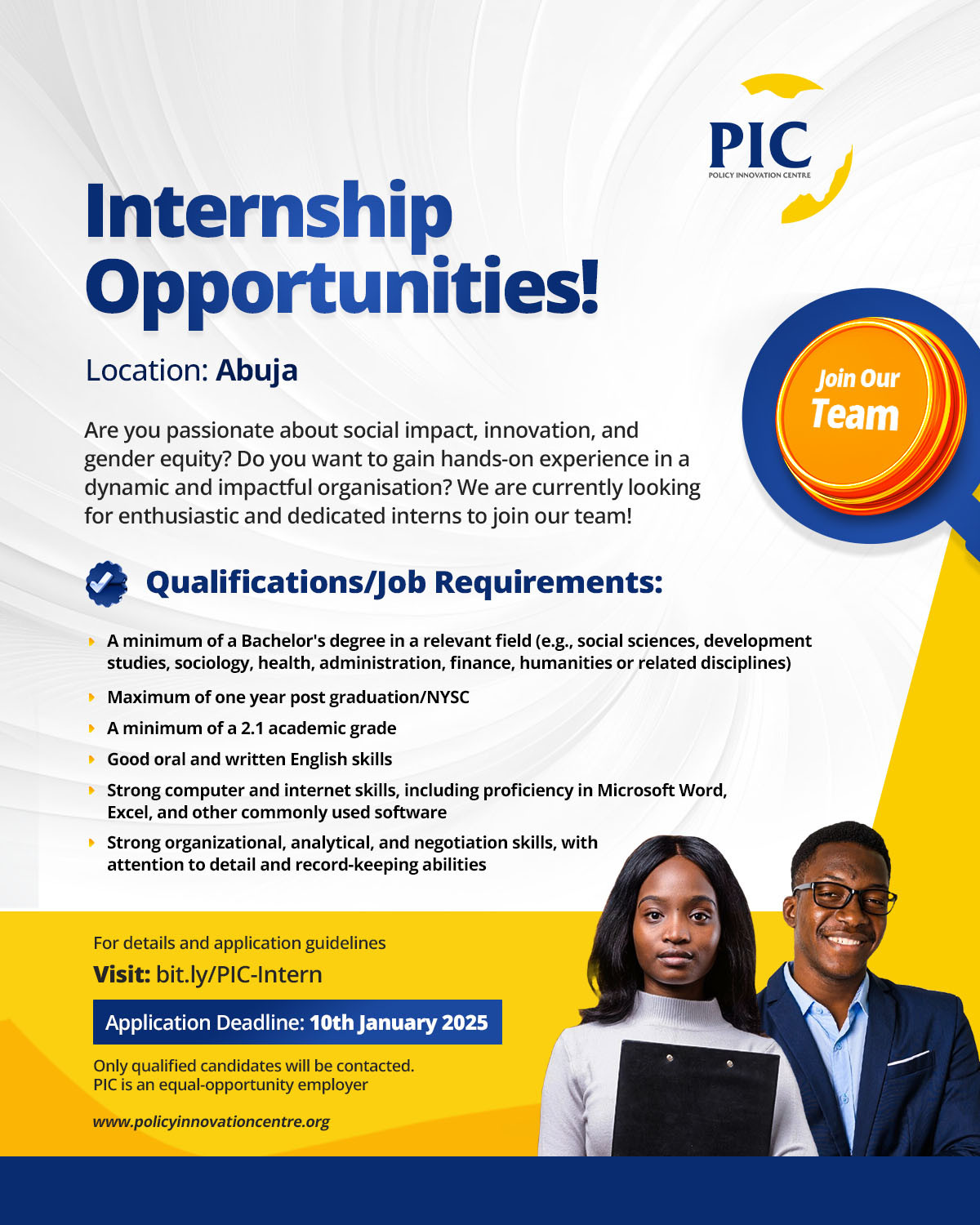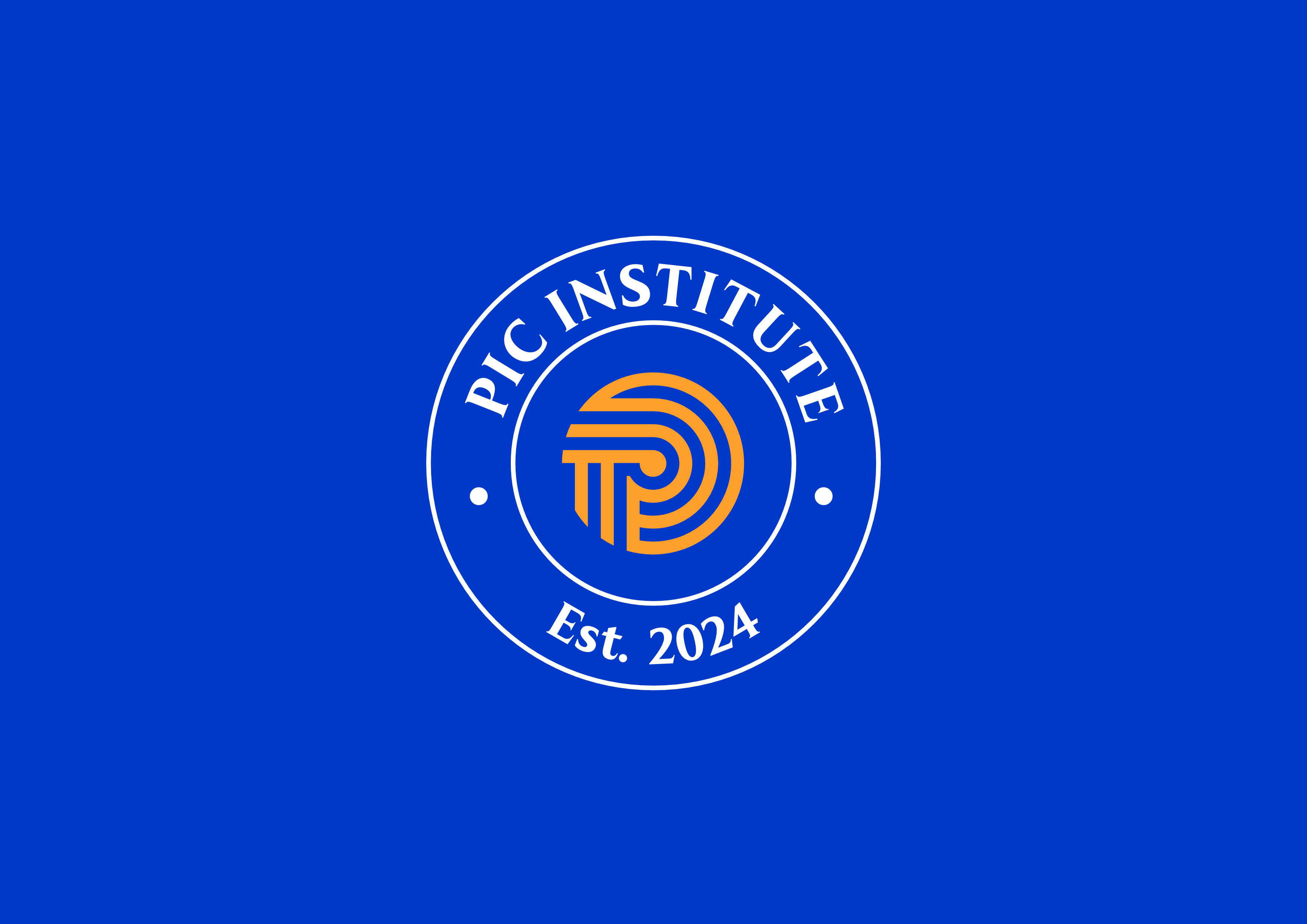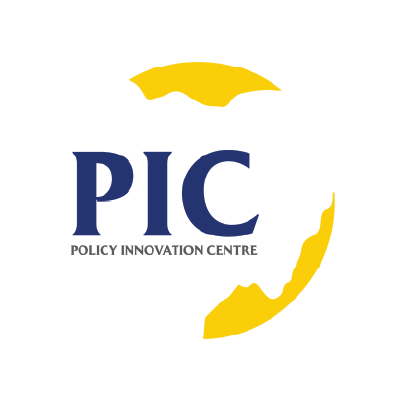PIC advocates behaviourally informed policies to deepen social impact
Indigenous not-for-profit, the Policy Innovation Centre (PIC), has advocated the adoption of behaviourally informed policies to deepen the impact of social interventions in Nigeria.
Launched at the 27th Nigerian Economic Summit (NES 27) in October, the PIC helps policymakers and programme implementers improve outcomes for the people of Nigeria. It is also the first national-level unit of its kind in Africa applying lessons from behavioural and social sciences to inform better policies and decision making.
The Centre, on Thursday, concluded a two-day design workshop with the themes ‘Behavioural Insights for Improving Transparency in Nigeria’ and ‘Behavioural Insights for Development’. Both sessions were well attended by participants drawn from the public and private sectors looking to apply behavioural insight in their respective spheres.
Executive Director of the PIC, Faisal Naru, said: “Nigeria is experiencing similar issues and challenges as many countries are across the world. Policy issues are increasingly more complex and dynamic. There are limited resources and capacities available. What we are trying to do is navigate those challenges with innovative policy tools that can help Nigeria take the best course of action, given the complexity and limited resources available.”
“The design workshop was organized to introduce development sector stakeholders to behavioural insights,” added Dr. Osasuyi Dirisu, Deputy Director, PIC. “We are working with stakeholders to reflect on the design of effective solutions, support behaviourally informed policy decision-making and deepen the impact of social interventions in Nigeria.”
The design workshop series is expected to continue, as the PIC dialogues with stakeholders in government, NGOs and the international community to understand the policies they are working on, their specific needs and how it can help.
“Our key mantra is that the work we do is ‘pro-social,” emphasized Naru, who disclosed that Behavioural Insight is now a policy tool used across the world.
“If there are audiences that would like to work with us in relation to that, we are more than happy to have followed up discussions with them to see how we can collaborate and support each other to make Nigeria better for everyone.”



